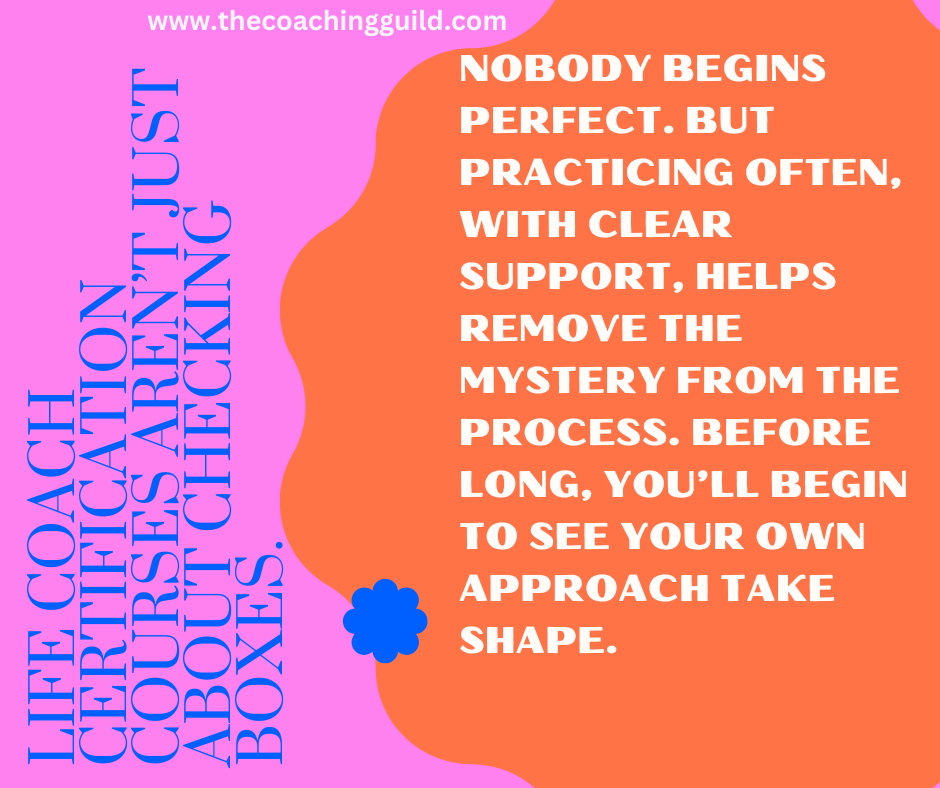Step-by-Step Guide to Mastering Essential Life Coaching Techniques
Life coaching isn't just about giving advice; it's about guiding people to reach their potential. Think of life coaching like gardening. Just as a gardener nurtures plants to help them grow, a life coach helps individuals blossom by unlocking their inner strengths. But mastering life coaching techniques isn't just helpful, it makes the difference between a good coach and a great one.
Understanding what makes a life coach effective can change everything for both the coach and those they help. Strong techniques provide the foundation needed to inspire meaningful change. Whether it's learning how to listen well or asking the right questions, these tools can help coaches make a deeper impact in the lives of others.
Understanding Different Types of Questions
Questions are the heart of life coaching. They open doors to new ways of thinking and help clients reflect on their path. Two main types of questions play a role: open-ended and closed-ended. Each has its place, but knowing when and how to use them can elevate a coaching session.
Open-ended questions invite expansive thinking. They often start with words like "how" or "why" and encourage clients to express their thoughts openly. For example, asking "How do you feel about your current job?" invites depth and reflection. Such questions encourage clients to explore their feelings and thoughts, giving them the space to articulate what might be holding them back.
Closed-ended questions, on the other hand, are more direct and usually answered with a simple "yes" or "no." They are useful for narrowing down specifics or when clarity is needed. For example, "Do you enjoy your current job?" helps pinpoint precise issues quickly.
By balancing these types of questions, coaches can steer conversations in a productive direction without overwhelming clients. Here are some ways to use questions effectively:
- Start sessions with open-ended questions to explore broader topics.
- Use closed-ended questions to confirm specific points or decisions.
- Adapt your questions based on the client's responses to foster meaningful dialogue.
When handled with care, questions become powerful tools in guiding clients along their journey of self-discovery. They transform ordinary conversations into insightful exchanges that promote growth and insight.
Active Listening Strategies
Active listening is the backbone of any strong coaching relationship. It goes beyond just hearing words; it's about understanding the message and emotions behind them. When coaches truly listen, clients feel valued and understood, which fosters trust and opens up pathways for deeper conversations.
To improve active listening skills, coaches can use several techniques. First, maintain eye contact and nod occasionally to show attention. This simple gesture reassures clients that they're being heard. Another method is paraphrasing. By repeating back what a client has said in your own words, you confirm that their message is accurately understood. For example, if a client expresses doubt about their career path, responding with, "So, you're feeling uncertain about your job prospects?" can validate their feelings and invite further discussion.
Reflection is also a key part of active listening. Take a moment to reflect on what has been said before responding. This helps avoid premature judgments and encourages a thoughtful reply. By focusing entirely on the speaker's words and body language, and minimizing your internal dialogue, you maintain full engagement in the conversation.
Finally, ask clarifying questions if something isn't clear. This shows clients that their coach is genuinely interested in understanding them fully and is committed to their success.
Developing Empathy
Empathy is crucial in life coaching. It's what allows coaches to connect on a personal level and truly understand their clients' perspectives. When empathy is present, clients feel more comfortable sharing their thoughts and feelings, knowing they’re in a supportive environment.
To practice empathy effectively, coaches can start by putting themselves in their clients’ shoes. Imagine the situations clients are facing from their point of view. This aids in comprehending the emotions and challenges they might be experiencing. Another way to show empathy is by acknowledging and validating these emotions. Simple statements like, "I can see how that would be frustrating," can make clients feel understood and appreciated.
Listening without judgment is an essential part of empathy. This creates a safe space for clients to express themselves honestly without fear of criticism. Demonstrating patience and giving clients the time they need to articulate their feelings shows that you value their input.
Additionally, adopting an open-minded approach encourages deeper engagement with clients. Being open to various opinions and experiences helps build a stronger, more empathetic relationship. These connections create trust, enabling more effective guidance and support for the client’s journey.
The Art of Giving Feedback
Providing feedback is a vital skill in guiding clients toward progress. Constructive feedback helps clients recognize their strengths while identifying areas for improvement. The goal is to deliver this feedback in a way that's supportive and encouraging, rather than critical.
To ensure feedback is constructive, start by highlighting positive aspects of a client's actions or progress. This can set a positive tone and reinforce their good efforts. For instance, saying, "You've made noticeable progress in your communication skills," acknowledges their achievements before addressing areas that need attention.
When giving constructive criticism, be specific about what needs improvement and why. Use examples to illustrate your points so clients can clearly understand the feedback. Offering suggestions or strategies for development can encourage clients to take actionable steps toward improvement.
Timing is another key factor in effective feedback. Choose appropriate moments when clients are more likely to be receptive. Offering feedback immediately after a relevant event or discussion can enhance its impact and relevance.
Follow-up is equally important. Check in with clients to discuss their feelings about the feedback and any changes they've made. This shows continued support and helps maintain a positive coaching relationship.
Summarize and Inspire
Mastering life coaching techniques involves a delicate balance of questioning, listening, empathy, and feedback. Together, these skills empower coaches to make a meaningful difference. By refining these abilities, coaches can foster genuine relationships and drive lasting change in their clients’ lives.
Coaches, keep honing your craft and stay dedicated to your journey. With each interaction, you have the chance to inspire and nurture growth. Remember, every step taken on this path contributes to the well-being and success of those you guide.
Ready to enhance your coaching abilities and make a greater impact? At The Coaching Guild, you can access personalized support and proven strategies to grow in your coaching journey. If you're looking to deepen your expertise and expand your reach, explore how you can
learn to be a life coach with guidance tailored to your goals.


